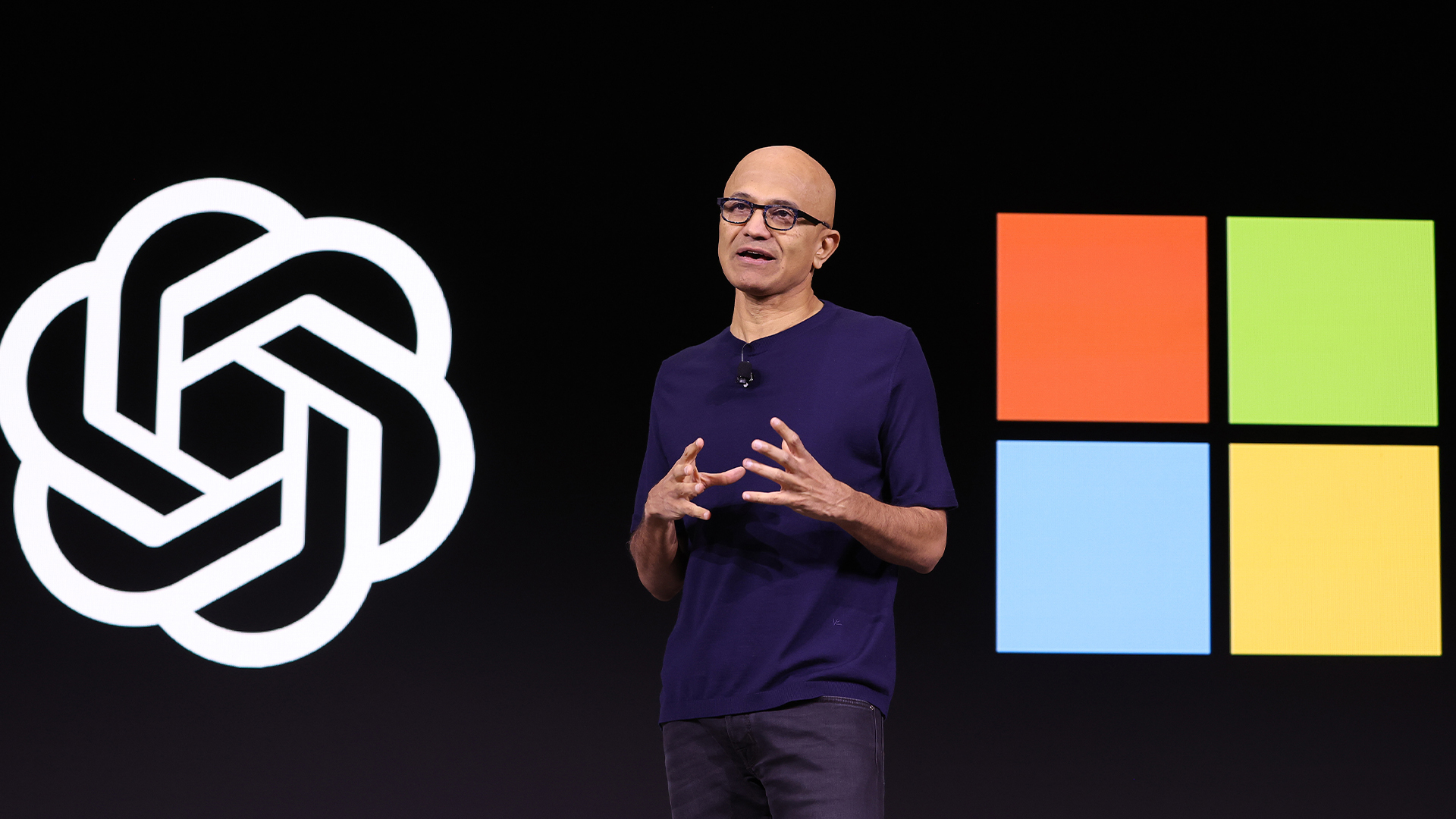Microsoft facing FTC antitrust probe over cloud, AI competition concerns
Microsoft could be set for another antitrust battle, this time focused on cloud and AI


The US Federal Trade Commission (FTC) is investigating Microsoft over antitrust issues, according to sources cited in multiple reports.
While the reports suggest the FTC is examining multiple facets of Microsoft's business, including AI, Office, and security, the focus appears to be cloud computing and how its Azure services are bundled with its other products and services.
According to the New York Times, the FTC has formally requested information about Microsoft's cloud computing, security and AI products.
Bloomberg reports the information request runs into the hundreds of pages, with the FTC and Microsoft set to meet next week. Beyond the cloud, the reports suggest Microsoft's AI business is coming under specific scrutiny.
Those reports follow one in the Financial Times earlier this month which suggested the FTC was set to launch an investigation specifically into Microsoft's cloud computing business amid claims the company makes it too hard to move data from Azure to rival providers.
Last year, the FTC ran a consultation about the cloud computing market, finding concerns around software licensing, egress (or data transfer) fees, and minimum spend contracts.
Meanwhile, the FTC already has an industry wide inquiry into partnerships between technology companies and AI startups. Microsoft has invested nearly $14 billion into OpenAI.
Get the ITPro daily newsletter
Sign up today and you will receive a free copy of our Future Focus 2025 report - the leading guidance on AI, cybersecurity and other IT challenges as per 700+ senior executives
As yet, the FTC has made no statement regarding the investigation. IT Pro contacted Microsoft for comment, but has not responded at the time of publishing.
Microsoft’s cloud woes continue
The FTC's investigation into the cloud market echoes similar activity by regulators in the UK and Europe. The UK Competition and Markets Authority (CMA) is looking into antitrust issues in the cloud market centered on Microsoft and Amazon.
Meanwhile, a formal complaint was filed to the EU concerning Microsoft's cloud practices, but any action was cut short after the company signed a controversial deal with complainants in July.
Generally, the complaints center around how Microsoft bundles its products, which critics claim makes it more expensive to use a rival cloud provider with Microsoft software than to use Microsoft's Azure alongside its Office and other products.
RELATED WHITEPAPER

Companies using Azure will end up paying more to switch to another provider, as they'll need to shell out for additional licenses, critics say.
Of course, this isn't the first battle between the government and Microsoft, and comes more than two decades after Microsoft was sued by the US government over antitrust concerns, with the company narrowly dodging being broken up.
Freelance journalist Nicole Kobie first started writing for ITPro in 2007, with bylines in New Scientist, Wired, PC Pro and many more.
Nicole the author of a book about the history of technology, The Long History of the Future.
-
 Salesforce wants technicians and tradespeople to take AI agents on the road with them
Salesforce wants technicians and tradespeople to take AI agents on the road with themNews Salesforce wants to equip technicians and tradespeople with agentic AI tools to help cut down on cumbersome administrative tasks.
By Ross Kelly Published
-
 ITPro NAB Best of Show 2025 Awards winners unveiled
ITPro NAB Best of Show 2025 Awards winners unveiledThe best of the best have received accolades for their innovation at this year's NAB show in Las Vegas...
By ITPro Published
-
 "I LOVE this company!" Looking back on 50 years of tech giant Microsoft
"I LOVE this company!" Looking back on 50 years of tech giant MicrosoftOpinion There have been highs, lows, laughs and lots of success in the past 5 decades for the Redmond-headquartered firm
By Maggie Holland Published
-
 The CMA just dropped its probe into the Microsoft–OpenAI deal
The CMA just dropped its probe into the Microsoft–OpenAI dealNews The CMA has dropped its probe into the partnership between Microsoft and OpenAI, saying the deal doesn't give Microsoft a controlling interest over the AI firm.
By Emma Woollacott Published
-
 Microsoft says there’s an AI divide brewing – here’s how enterprises can get on the right side
Microsoft says there’s an AI divide brewing – here’s how enterprises can get on the right sideNews Research from Microsoft and Goldsmiths University suggests there is a growing 'AI divide' among enterprises adopting the technology and those sluggish to react.
By George Fitzmaurice Published
-
 ‘Europe could do it, but it's chosen not to do it’: Eric Schmidt thinks EU regulation will stifle AI innovation – but Britain has a huge opportunity
‘Europe could do it, but it's chosen not to do it’: Eric Schmidt thinks EU regulation will stifle AI innovation – but Britain has a huge opportunityNews Former Google CEO Eric Schmidt believes EU AI regulation is hampering innovation in the region and placing enterprises at a disadvantage.
By Ross Kelly Published
-
 Microsoft promises more AI spending despite cloud cost stumble
Microsoft promises more AI spending despite cloud cost stumbleNews Microsoft recorded revenue and earnings growth in its latest quarterly results, but higher than expected costs in cloud and AI raised investor concerns.
By Nicole Kobie Published
-
 Microsoft staff face second round of layoffs as firm continues cost-cutting measures
Microsoft staff face second round of layoffs as firm continues cost-cutting measuresNews The size of the layoffs has not been specified, though Microsoft has said they will be small
By George Fitzmaurice Published
-
 SoftwareOne to acquire Crayon in $1.4 billion merger deal
SoftwareOne to acquire Crayon in $1.4 billion merger dealNews The merged firm will be 'uniquely positioned' to capitalize on a $150 billion market
By Emma Woollacott Published
-
 Google wants regulators to break up Microsoft's OpenAI deal
Google wants regulators to break up Microsoft's OpenAI dealNews Google has already been nipping at Microsoft’s heels in the European cloud market over competition concerns
By George Fitzmaurice Published
